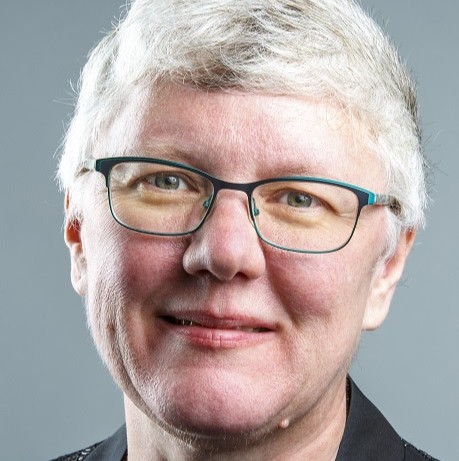Breaking the Silence on Linguistic and Gender Bias in Scholarly Publishing: What Can Librarians Do?
Breaking the Silence on Linguistic and Gender Bias in Scholarly Publishing: What Can Librarians Do?
Lynne Bowker, Mikael Laakso, Janne Pölönen
Society is evolving. Practices that may have been normalized in the past are now being called into question. This includes various types of bias in scholarly publishing, such as linguistic and gender bias. Bias is problematic because it can result in some groups in the community being underrepresented or having fewer opportunities, while others are overrepresented and have more opportunities. For instance, in the context of scholarly publishing, bias could take forms such as:
- inadequate representation of some genders in a study sample;
- underrepresentation of authors, peer reviewers or editorial board members from certain cultural backgrounds or geographic regions;
- lower numbers of citations of works published in certain languages;
- fewer leadership roles held by people of a particular gender.
—Left unchecked, bias can take a serious toll on mental health and wellbeing—
Left unchecked, bias can take a serious toll on mental health and wellbeing. In scholarly publishing, the effects of linguistic bias and gender bias can even impact the career paths and livelihoods of researchers. For instance, scholars may take longer to read literature or write articles in their less dominant language, leading to a lower overall research output. Similarly, women may feature less often as the first or corresponding author of research articles in some fields or journals, which can result in perceptions that they are less competent. Different types of prejudice can even accumulate – a phenomenon known as intersectionality – meaning that a researcher who is both a woman and a speaker of a less widely used language could end up being doubly marginalized. But who is responsible for tackling such complex and sensitive issues?
 Creating an environment that fosters Equity, Diversity, Inclusion and Belonging (EDIB) is a shared responsibility, meaning that librarians have a role to play too. The first step in addressing bias is recognizing that it exists and raising awareness among others. But once the bias has been recognized, it can be challenging to know how to go about addressing it. In other words, sometimes our silence on important matters such as bias may stem not from a lack of goodwill but from a lack of knowledge about how to begin tackling such a complex and sensitive issue. Thankfully, resources are emerging, and one new source of support that can help academic librarians to break the silence on bias in scholarly publishing comes from a project known as DIAMAS (Developing Institutional Open Access Publishing Models to Advance Scholarly Communication), which is funded by the European Union.
Creating an environment that fosters Equity, Diversity, Inclusion and Belonging (EDIB) is a shared responsibility, meaning that librarians have a role to play too. The first step in addressing bias is recognizing that it exists and raising awareness among others. But once the bias has been recognized, it can be challenging to know how to go about addressing it. In other words, sometimes our silence on important matters such as bias may stem not from a lack of goodwill but from a lack of knowledge about how to begin tackling such a complex and sensitive issue. Thankfully, resources are emerging, and one new source of support that can help academic librarians to break the silence on bias in scholarly publishing comes from a project known as DIAMAS (Developing Institutional Open Access Publishing Models to Advance Scholarly Communication), which is funded by the European Union.
The DIAMAS project primarily targets Diamond open access (OA) institutional publishers and service providers, where academic libraries play key roles in the Diamond OA ecosystem, such as providing infrastructure and services, as well as training and expert support for institutional publishers. In many cases, academic libraries are also publishers in their own right. DIAMAS seeks to support libraries in these roles through a new collection of resources launched in January 2025. Within this collection, one set of resources directly addresses EDIB, and it includes specific toolsuites and guidelines for improving multilingualism and gender diversity, as well as a Getting Started Guide for developing an EDIB strategy. Among the information available in these resources, librarians can find tips on:
- adopting inclusive language in communications;
- developing and sharing diversity statements, action plans, and policies for EDIB;
- setting goals for and monitoring progress in EDIB;
- promoting multilingualism in scholarly publishing.
Moreover, in an effort to walk the walk and not just talk the talk, DIAMAS has made many of these resources available not only in English, but also in Spanish, Croatian and Portuguese.
As EDIB-oriented actions and resources are being threatened or undermined in some quarters, it is crucial for academic librarians to know where they can obtain support to continue challenging bias as a means of supporting mental health and wellbeing in the research community. Diamond OA practices are pioneering when it comes to leveling the playing field for both readers and authors of scholarly publications through equitable publishing, and we believe that actors in this space are also well-positioned to initiate and lead other equity-promoting activities. Through the DIAMAS collection, academic librarians can access resources that can help them to take a mindful approach to addressing linguistic and gender bias in scholarly publishing.
Cite this article in APA as: Bowker, L., Laakso, M., & Pölönen, J. Breaking the silence on linguistic and gender bias in scholarly publishing: What can librarians do? (2025, February 4). Information Matters, Vol. 5, Issue 2. https://informationmatters.org/2025/02/breaking-the-silence-on-linguistic-and-gender-bias-in-scholarly-publishing-what-can-librarians-do/
Authors
-

Professor and Canada Research Chair in Translation, Technologies and Society at Université Laval, Canada. Author of Machine Translation and Global Research (Emerald 2019) and De-mystifying Translation (Routledge 2023).
View all posts Professor -
Associate Professor (tenure track) in Information Studies at Tampere University, Finland, specializing in scholarly communication and open science.
View all posts -
Secretary General for Publication Forum at the Federation of Finnish Learned Societies. Coordinator of CoARA WG on Multilingualism and Language Biases in Research Assessment - Advocate of the Helsinki Initiative on Multilingualism in Scholarly Communication.
View all posts





